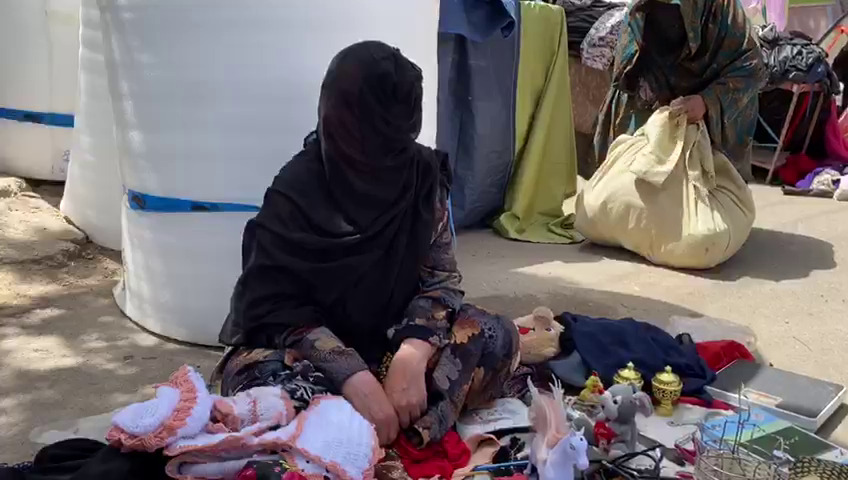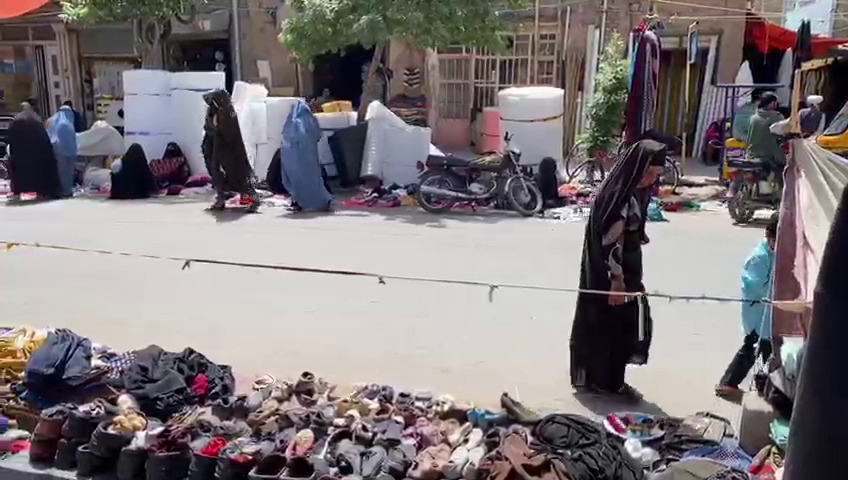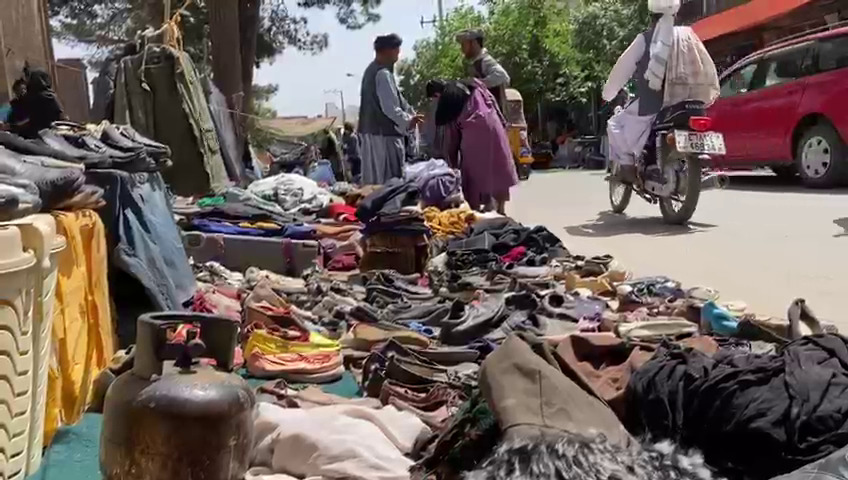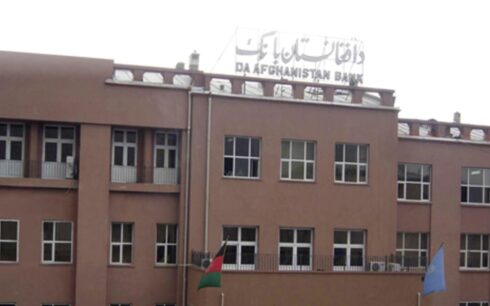The recent ban on women working for the United Nations in Afghanistan, coupled with the December ban on women working for national and international NGOs is already having a profound impact on the lives of millions of people across the country.
Many of these people are educated, and once earned a decent living from their chosen careers – men and women, who worked in different sectors.
But today, the streets of Herat are testimony to the times, the hard times that have befallen so many families across the country.
With the distribution of aid by the UN having been suspended over the past few days, following the ban on female national staff, the number of people across the country who are now deprived of food aid is growing – and Herat is a prime example of this.
Dozens of people have taken to the streets in the city as hawkers, where they huddle on the sidewalks, displaying their goods – the women shrouded in blue burqas.
Mahgol used to work at the Herat Department of Public Protection but lost his job when the Taliban took over. He said the loss of income and the high price of food has had a serious impact on his life.
He said: “I was an employee of the Department of Public Protection for three years, but I lost my job and am forced to sell on the street,” adding that now, without food aid, he has had to start selling second-hand items.
Asefe was a teacher at a private school in Herat city. She said when the Taliban banned girls from attending high school many private institutions closed down. She lost her job and now sells second-hand goods on the street.
“I used to be a teacher at one of the private schools. I graduated from university,” she said, adding that she has no alternative but to sell goods in order to support her family.

Gholam Sakhi had worked for the Herat University’s Faculty of Engineering for 26 years before retiring. He said the Taliban has not paid him his pension. He also now sells used goods on the streets of Herat.
“I worked at Herat University for 26 years. It’s been two and a half years since I have been paid my pension. Now I have to sell [goods].”
The Taliban’s latest order, against women working for the UN in the country, meanwhile comes amid an already growing crisis – or “catastrophic hunger” that is knocking on Afghanistan’s doors, as described by the UN World Food Program (WFP) just two days ago.
Earlier this month, the UN said that with a record 28.3 million people in need of assistance in 2023 and a humanitarian appeal of $4.6 billion, Afghanistan is the world’s largest aid operation. It is also the UN’s lowest-funded operation globally, at less than five percent.

“While we continue to engage with the Taliban de-facto authorities to find a solution to these decrees, we urge the international community not to punish the Afghan people further by withholding critical funding”, said the Resident and Humanitarian Coordinator in Kabul Ramiz Alakbarov at the time.
Now, however, the UN has temporarily suspended activities in the country following the latest order against women – which means critical aid is currently not reaching millions of people.
In a statement on Tuesday, the UN office in Afghanistan said that through this ban, the Taliban seek to force the United Nations into having to make an appalling choice between staying and delivering in support of the Afghan people or standing by the norms and principles the organization is duty-bound to uphold.
The UN Assistance Mission in Afghanistan (UNAMA) added that UN national personnel – women and men – have been instructed not to report to UN offices, with only limited and calibrated exceptions made for critical tasks.





